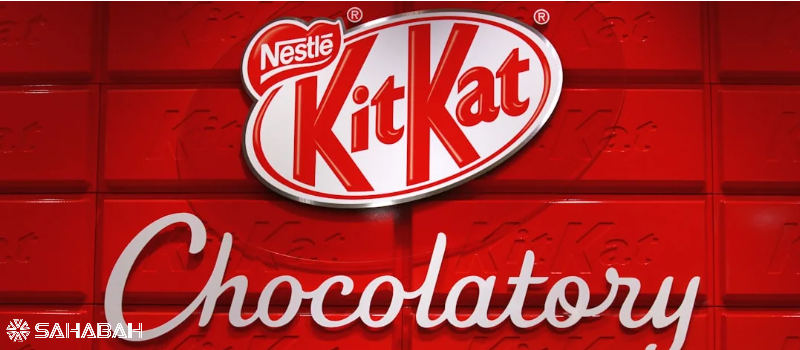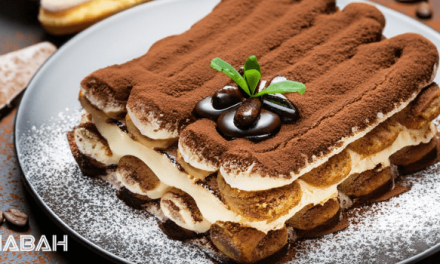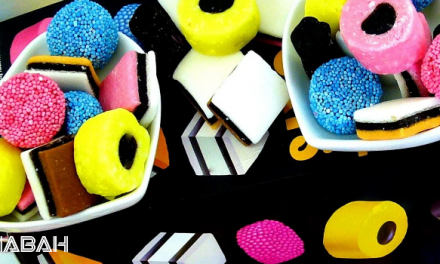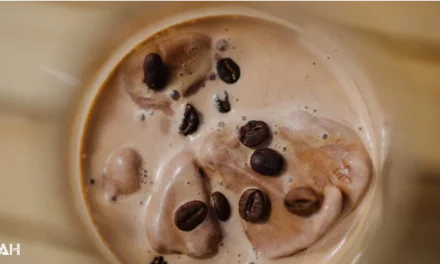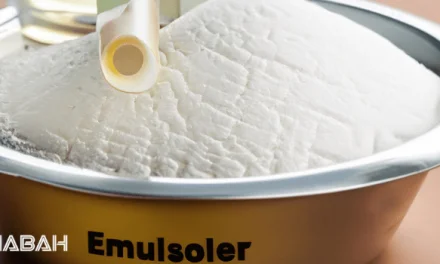Nestlé is the largest food company in the world, offering thousands of different products across dozens of brands. With halal food certification becoming an increasingly important consideration for Muslim consumers, a common question arises: Are Nestlé products halal?
What Does Halal Mean?
Halal refers to products and practices that adhere to Islamic law and dietary regulations. For food or drink to be certified halal means it meets certain guidelines in terms of both ingredients and preparation, including:
- Does not contain pork, alcohol, blood, or any other ingredients forbidden by Islamic dietary laws
- Has been thoroughly cleaned and processed on equipment and machinery that is also halal certified
- Packaging, storage, and transportation throughout the supply chain occurs per halal standards
Halal certification is conducted by approved halal authorities that audit and validate that these requirements are met at every step—from sourcing to manufacturing to handling. Products that pass inspection by a certification organization can display their symbol and verification marking.
Does Nestlé Have Halal Certification?
Nestlé has received halal certification for some of its facilities and product lines around the world from agencies like the Department of Islamic Development Malaysia (JAKIM) and the Islamic Food and Nutrition Council of America (IFANCA).
However, Nestlé does not have universal halal certification across all brands. Each factory and product is individually assessed and approved. So while some foods meet halal standards, others do not or have not completed inspection processes.
Their public halal policy states:
Nestlé Malaysia is committed to providing the Muslim community with products that meet their religious needs and we are pleased that most of our Malaysian factories and products are JAKIM certified halal. Our colleagues check and monitor our product ingredients and production processes to ensure ongoing compliance with halal requirements for ingredients sourced locally or imported into Malaysia.
So certification is managed factory by factory, and consumers ultimately must check packaging for certification specifics.
Are Nestlé Products Halal? Breakdown by Category
Since verification varies widely depending on region and product line, below is a more detailed breakdown of common Nestlé food categories and what is known about their halal status:
Nestlé Waters and Beverages
-
Nestlé Pure Life Water – Pure Life water claims to be bottled in facilities that meet halal standards. However, halal symbols may not always be marked given fluctuation across regions in both manufacturing and certification import laws. Calling or emailing Nestlé customer service could provide clarification.
-
Nescafé Coffee – Nescafé’s factory in Malaysia is halal certified along with its 3 in 1 instant coffee product manufactured there. However Nescafé products made elsewhere may not carry halal designations.
-
Milo – Nestlé has obtained halal certification for Milo plants in Malaysia, Singapore, and Indonesia. But Milo does not have blanket halal approval, so confirmation is required per region and manufacturing origin via packaging.
Nestlé Chocolates and Candies
- KitKat – Nestlé KitKats made in Malaysia and Singapore are halal certified. But those produced in other countries typically will not carry halal markings.
Nestlé Breakfast Cereals
- Nestlé Cereals – No halal claims could be found for common Nestlé cereal brands like Cheerios and are likely produced on shared equipment. Careful inspection of packaging is advised looking for a certification symbol.
Nestlé Coffee and Tea Products
-
Nescafé – As mentioned, the Nescafé factory in Malaysia is halal approved along with its 3-in-1 instant coffee offering. Other locations or products do not seem to have certification.
-
Nestea – Given the very limited halal verification, it should not be assumed Nestea is halal compliant unless specified by flavor or region via customer service contacts.
Nestlé Ice Creams
-
Drumstick – Nestlé Drumstick does not appear to be halal certified. Additionally, their standard vanilla ingredients list includes non-halal gelatin derived from animal byproducts.
-
Outshine – No halal designation found. Some Outshine items also indicate alcohol amongst ingredients which would be forbidden.
Nestlé Pet Foods
- Purina – Nestlé Purina pet foods contain animal derivatives and meat components aside from solely muscle meat which likely excludes it from halal classification.
Nestlé Infant Formula and Baby Foods
-
Infant Formula – No Nestlé infant formulas marketed in the United States make halal, dairy-free or vegan claims. Caregivers are advised to thoroughly review ingredients for milk and vitamin components that may be questionable.
-
Gerber Baby Foods – Pork and meat products used in Gerber baby food processing further compromise halal status.
So in summary, while Nestlé has acquired halal certification for some of its foods and factories particularly in Malaysia and Indonesia which require it, most global products and facilities remain without official verification. Consumers need to investigate each item specifically.
How to Verify If a Nestlé Product Is Halal
Given the product-by-product and country-by-country variances in halal compliance, Nestlé customers wanting to confirm food standards can check:
Packaging and Labels
Carefully reading all text and symbols on packaging provides initial guidance:
- Scan for halal authority logo – Circled M, crescent M, or other indicators denote certification by Islamic approving bodies.
-
Review ingredient lists – Ensure none of the included components or additives violates dietary laws.
-
Check manufacturing origin – Production countries like Malaysia with predominantly Muslim populations increase likelihood of halal oversight.
Calling the consumer contact number with specifics on flavors, sizes, factory coding and more also yields helpful facts from company representatives.
Online Resources
Several databases have launched allowing buyers to search and match products against confirmed halal brands:
- Malaysian Department of Islamic Development portal
- IFANCA Halal Product Checker
- UAE ESMA System for validated foods
Referencing these directories indicates if verification has been obtained by Nestlé for any given item.
Ask Companies Directly
Nestlé maintains halal specific webpages and contact forms where questions get addressed regarding manufacturing processes, equipment, ingredients, and import regulations.
Providing all product details and UPCs when available leads to the most accurate responses. Reps also track and escalate inquiry patterns to drive possible expansion per demand.
What If Halal Status Is Still Unclear?
If after thorough inspection and direct dialog with Nestlé, confirmation of halal remains inconclusive, consumers have a few options:
Purchase Alternatives with Clear Halal Tagging
When doubt exists that an item meets strict interpretative standards, rather than risking violation, comparable choices with unambiguous halal branding could be substituted, like:
- Meiji Apollo chocolate in place of KitKat fingers
- Safeway Signature Care bottled water instead of Nestlé Pure Life
While potentially more expensive or inconvenient, this precaution can provide peace of mind.
Consult Local Muslim Leaders
Well-respected religious scholars and imams may also lend perspective regarding the flexibility or appropriateness of Nestlé selections if certification proofs are incomplete. Some allowance variances may be possible depending on madhhab rulings.
Demanding Expanded Halal Certified Options
Nestlé earning halal authorization across certain product ranges and factories signals steps forward. But much potential remains to widen accessibility globally. Through collective action, consumers can influence direction and priority setting.
Petitions and Letter Writing
Grassroots paper-based or online signature campaigns calling for universal halal compliance across all Nestlé brands is one approach for activists. Rallying communities behind clear consensus calls-to-action can effectively display market viability.
Social Media Engagement
Leveraging platforms like Facebook, Twitter and Instagram to publicly ask questions of @Nestle also functions to log feedback. Numerous vocal inquiries regarding halal manufacturing often compel companies to respond in recognition of revenue opportunities.
Community Leader Endorsements
If area Muslim associations, mosques, halal trade bodies and religious leaders collectively communicated expectations and hopes for further Nestlé certification directly to C-level executives or board members, substantial sway may ensue. Their representation lends credibility and immediacy.
Through all channels, courteously and reasonably urging for expanded halal verification that also adheres to Nestlé’s sustainable sourcing values can potentially accelerate progress industry-wide.
Key Takeaways – Nestle and Halal Compliance
While Nestlé has obtained halal certification for some products and production facilities, gaps remain prevalent. Muslim consumers desiring full dietary alignment must proactively investigate item ingredients, manufacturing origin, packaging claims and check with validation databases or contact Nestlé Customer Service to clarify specifics on an individualized basis.
Certification status also differs across geographies based on local demographics and import laws. Given fluctuations, buyers wanting guaranteed halal attributes may need to consider alternatively branded items with transparent tracking until more universal attestations materialize.
Frequently Asked Questions: Is Nestle Halal?
Nestle offers a range of halal-certified products in various markets around the world. However, it is important to check the packaging or contact Nestle directly to verify the halal status of a specific product.
What are the ingredients in Nestle products?
Nestle products contain a variety of ingredients including fruits, vegetables, proteins, gluten, and other food components. It is recommended to check the packaging for specific ingredient information.
Are all Nestle products halal certified?
Not all Nestle products are halal certified. It is essential to look for specific halal certification labels on the packaging or reach out to Nestle for information on the halal status of a particular product.
Where are Nestle halal products available?
Nestle halal products are available worldwide in markets where there is a demand for halal-certified food products. You can check with local retailers or contact Nestle to inquire about the availability of halal products in your region.
How can I get in touch with Nestle for halal product inquiries?
You can contact Nestle through their official website or customer service hotline to inquire about specific products, including their halal status and availability.
Does Nestle offer kosher products as well?
Yes, Nestle provides kosher-certified products in addition to halal-certified ones. Customers looking for kosher products can check the packaging for kosher certification labels or contact Nestle for more information.
Are Nestle products suitable for individuals with dietary restrictions like coeliac disease?
Nestle offers a range of products suitable for individuals with specific dietary requirements, including those with coeliac disease. It is advisable to check the product packaging for gluten-free or other dietary labels.

